

For many decades, it was traditional forms of excavation using hydraulic excavators and backhoes, as well as hand tools to dig around or expose utilities. Operator accidents and underground utility damage were commonplace — especially in crowded, urban development areas. In 2017, over 400,000 excavation accidents were reported in North America, and the pressing need for safer, less invasive equipment could no longer be ignored.
By using vacuum excavation techniques, the risks involved in exposing or digging around utilities were nullified with a non-mechanical, non-destructive alternative, and there were two methods of doing this: using either water or air.
Enter the technology of vacuum excavation.
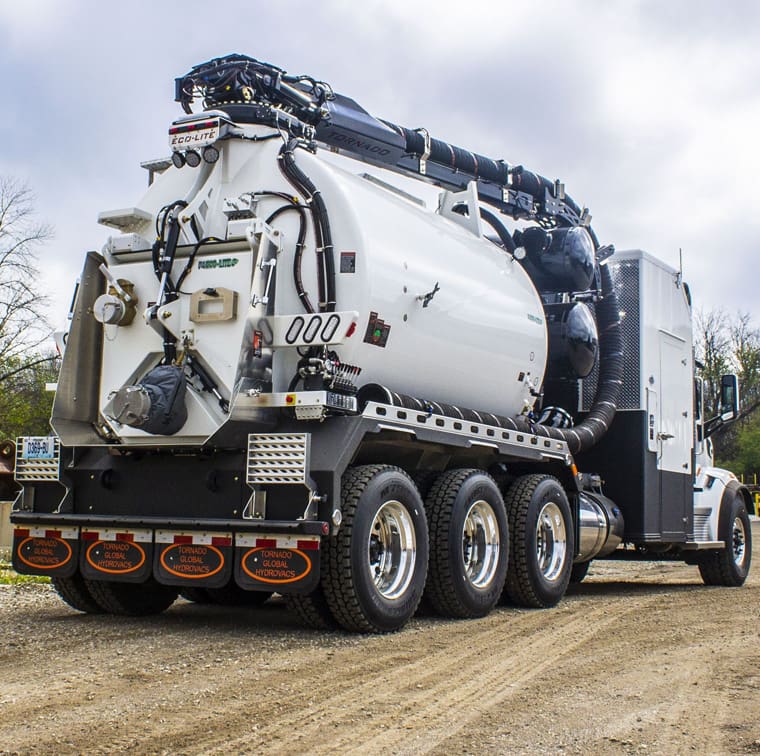
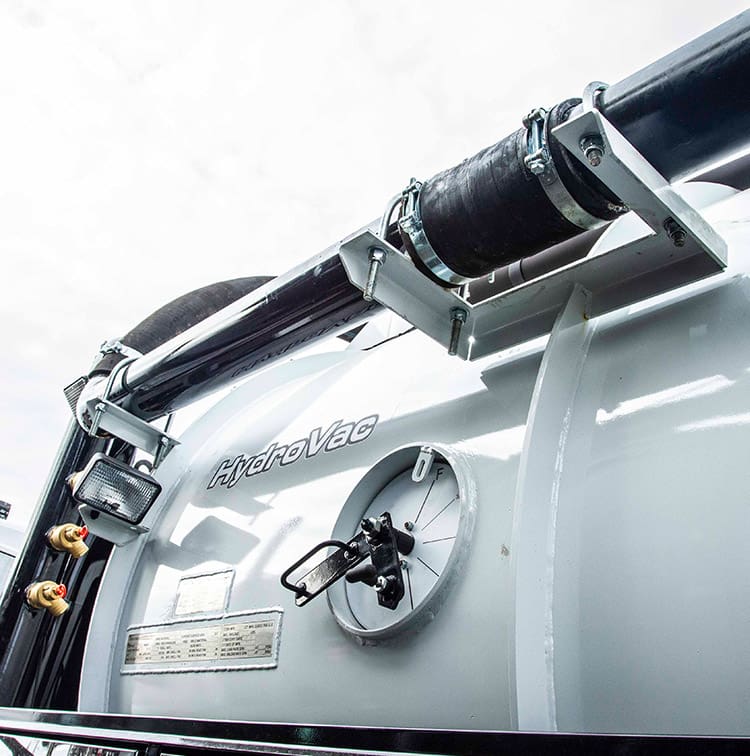
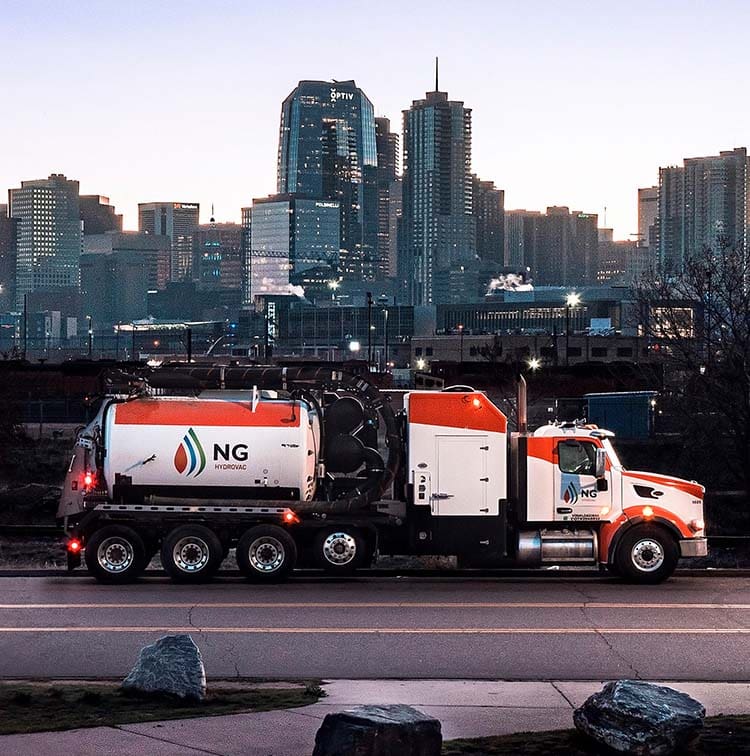
In this article, we will explore the water method – or hydro excavation – where high-pressure water is used to loosen the soil and dig a hole. The wet, muddy excavated material is then suctioned into a tank, mounted on a hydro excavator truck, and carried offsite to a designated dump location. The technology allows for quick and precise excavations which require less backfill, less labor and causes significantly less environmental impact than conventional drilling methods. And most importantly, hydro excavation poses very little threat, if any, to buried utilities.
The growing popularity of hydro excavation started largely in Canada, where cold weather and frozen soil often rendered traditional tools and methods to be ineffective. By utilizing hot water to aid the melting process, hydro excavation came as a godsend for oil & gas, construction and other Canadian industries, and it was a matter of time before United States embraced the safe and highly efficient technology as well.
We spoke to Paul Brouwers, Hydro-Excavation / Vacuum Product Manager at Custom Truck One Source, to get some valuable industry insider tips on the advantages of hydro excavator trucks, what to look for when buying one and so much more.
Excerpts from the interview:
Is there a difference between hydrovac and hydro excavation?
No, hydrovac is just a commonly-used term to describe a hydro excavation truck.
What is a hydrovac?
A hydrovac is a piece of equipment that uses high-pressure water to cut and liquefy the soil, while simultaneously using high volume vacuum to remove the soil from the excavation. Both fresh water and soil from the excavation are contained in the typically truck mounted unit.
What are some of the most common uses for hydro excavation trucks?
Daylighting (practice of digging to expose and locate underground utilities), soil trenching (digging narrow trenches to install cables, pipelines and other in-ground utilities), piling hole excavation (digging holes of various diameters and depths to lay all types of pilings), debris removal and cold-weather digging.
Are there different types of hydrovacs?
There are different models of hydrovacs in the market. And varying models have varying levels of vacuum, varying levels of capacity (as far as water and debris are concerned) and varying levels of water pressure. But in concept and function, they are all largely the same.

The advantage above all is safety. By using a hydrovac, you can dig around existing utilities, gas mains, power lines etc. without risking damage to the infrastructure or harm to workers on the site.
75% of damages caused in the utility industry are from shovel strikes. The Common Ground Alliance (an association dedicated to ensuring public safety, environmental protection, and integrity of services by promoting effective practices for preventing damage to underground utilities in North America) recognizes both vacuum excavation and hand digging as safe ways to expose utilities. I believe the tone of the CGA will soon change to identify vacuum excavation as the preferred method, grouping hand digging in with mechanical excavation. I also believe we are close to seeing legislation that carries the same message.
The second advantage is higher precision and less restoration. Compared to manual digging, you need much less manpower, so it is cost-effective. Finally, it is less intrusive from an environmental point of view. The excavated dirt is stored in debris tanks, keeping the worksite clean with minimal disruption to traffic.
One disadvantage that comes to mind is the need to carry the excavated soil away from the job location. Which means you need a designated dumping location. As the method uses water to soak and soften the soil, that slurry like material cannot be used afterwards to fill the hole back in.
Though air excavation – which loosens the soil using compressed air — functions along the same lines as hydro, it does allow excavated material to be dumped back onsite. But that said, air excavation has too many other inefficiencies, in my opinion, which overshadow this particular advantage.
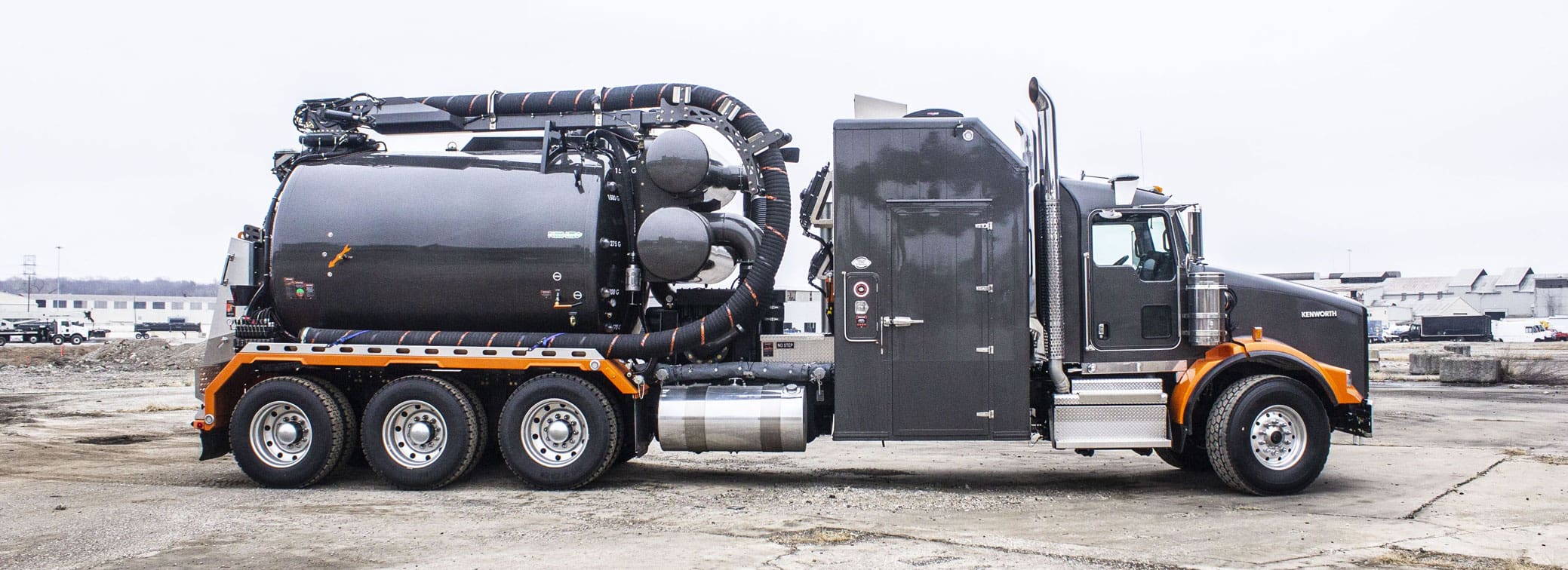
Call me, or one of our representatives at Custom Truck One Source. Our staff will not only help you choose the right hydro excavation truck for your particular needs, they will help you organize financing as well. For more information and our contact details, click HERE.
That said, there are at least 6 things to consider when buying a new or used hydrovac truck:
If the soil is primarily sandy, for example, make sure you have a way to properly get the debris out of the tank because sand seems to stick a little bit more than clay or silty loam. Ground conditions are affected by weather too, and that is another important factor. If the soil is frozen, then hot water from a boiler must be used to melt the ice.
You must know how far from the truck will you be working. You cannot drive these trucks into people’s back yards obviously, so if you’re working in a rear easement, you must know if it is 200 ft or 600 ft away from the truck. The further from the source of vacuum you are working, the more powerful blower you will need.
A third thing to consider is what sort of excavation you will be doing. If you are doing deep excavations, like piling that holes 20 ft deep, you will also need a blower that will match the lift you require.
Be aware of your dump location and dump environment. If you’re dumping into containers, make sure the truck has the proper dump height, as well as the ability to control the dump.
If you’re doing pipeline work or oil & gas work going off-road, you have to make sure you have got a truck that works best for those scenarios.
Be aware of bridge laws in the state you’re operating in, so you don’t fall foul of regulations like weight restriction that may apply.
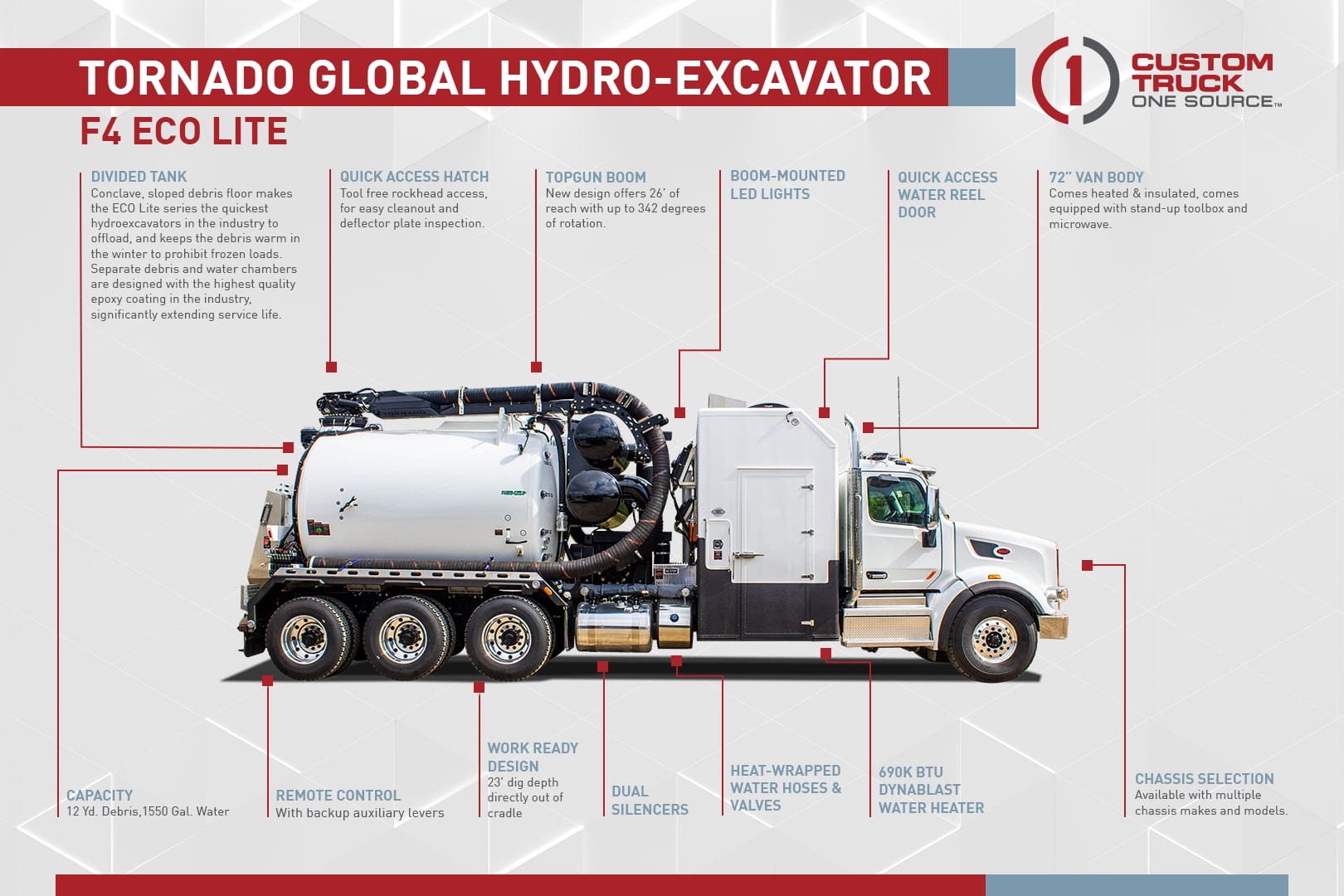
We’re selling to oil & gas, contractors, pipeline companies, utility companies etc. We offer both renting and purchase options and have some of the best leasing programs in the market.
I wholeheartedly believe this is the future of excavation. For any companies that dig around utilities, its not a matter of if they will need a hydrovac. It’s when.
For more information regarding our hydro excavation trucks, please contact us. In the meantime, check out our full equipment line of vacuum trucks.
Photos by John Maznio for NG Companies